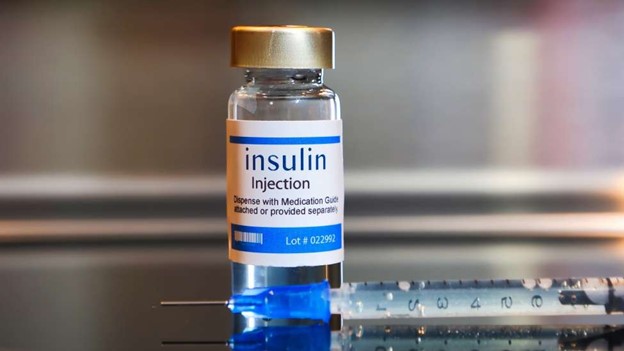The client has been prescribed furosemide (Lasix) for the treatment of edema. The nurse should monitor for which of the following adverse effects.
Hypertension.
Hypoglycemia.
Hyperkalemia.
Hypotension.
The Correct Answer is D

Furosemide is a diuretic that lowers blood pressure by increasing urine output and reducing fluid volume in the body.
One of the possible adverse effects of furosemide is hypotension, which is low blood pressure.
This can cause symptoms such as dizziness, faintness, confusion, or weakness.
The nurse should monitor the client’s blood pressure and report any signs of hypotension to the doctor.
Choice A is wrong because hypertension, which is high blood pressure, is not a common side effect of furosemide.
In fact, furosemide is used to treat hypertension in some cases.
Choice B is wrong because hypoglycemia, which is low blood sugar, is not a common side effect of furosemide.
Furosemide does not affect blood sugar levels directly.
However, it may interact with some medications that lower blood sugar, such as insulin or oral antidiabetic drugs.
The nurse should check the client’s medication history and monitor their blood sugar levels if they are taking any of these drugs.
Choice C is wrong because hyperkalemia, which is high potassium levels in the blood, is not a common side effect of furosemide.
Furosemide belongs to a class of diuretics called loop diuretics, which lower potassium levels by increasing its excretion in the urine.
One of the possible adverse effects of furosemide is hypokalemia, which is low potassium levels in the blood.
This can cause symptoms such as muscle cramps, weakness, irregular heartbeat, or numbness.
The nurse should monitor the client’s potassium levels and advise them to eat foods rich in potassium, such as bananas, oranges, or potatoes.
Normal ranges for blood pressure are 90/60 mmHg to 120/80 mmHg.
Normal ranges for blood sugar are 4.0 mmol/L to 7.8 mmol/L (72 mg/dL to 140 mg/dL).
Normal ranges for potassium are 3.5 mmol/L to 5.0 mmol/L (3.5 mEq/L to 5.0 mEq/L).
Nursing Test Bank
Naxlex Comprehensive Predictor Exams
Related Questions
Correct Answer is A
Explanation
Increased urine output is a sign of adequate hydration, as it means the kidneys are filtering waste and fluids from the body through the urine. The urine should be pale straw or lemonade colored, which indicates good hydration.
Choice B is wrong because decreased urine output is a sign of dehydration, as it means the kidneys are not working well and waste products are accumulating in the blood.
The urine may be dark and strong smelling, which indicates poor hydration.
Choice C is wrong because dry mucous membranes are a sign of dehydration, as they indicate a lack of fluid in the body tissues.
Choice D is wrong because hypertension is not a direct indicator of hydration status, although dehydration can cause low BP due to reduced blood volume.
Correct Answer is B
Explanation

This is because hyperkalemia is a condition where the blood potassium level is too high.
This can cause cardiac arrhythmias, muscle weakness, and paralysis. Therefore, the nurse should administer intravenous insulin and glucose to lower the blood potassium level by shifting it into the cells.
Choice A is wrong because encouraging the patient to consume a high- potassium diet would increase the blood potassium level and worsen the condition.
Choice C is wrong because administering a potassium-sparing diuretic would prevent the excretion of excess potassium and aggravate the hyperkalemia.
Choice D is wrong because encouraging the patient to limit fluid intake is not relevant to the management of hyperkalemia and may cause dehydration.
Whether you are a student looking to ace your exams or a practicing nurse seeking to enhance your expertise , our nursing education contents will empower you with the confidence and competence to make a difference in the lives of patients and become a respected leader in the healthcare field.
Visit Naxlex, invest in your future and unlock endless possibilities with our unparalleled nursing education contents today
Report Wrong Answer on the Current Question
Do you disagree with the answer? If yes, what is your expected answer? Explain.
Kindly be descriptive with the issue you are facing.
